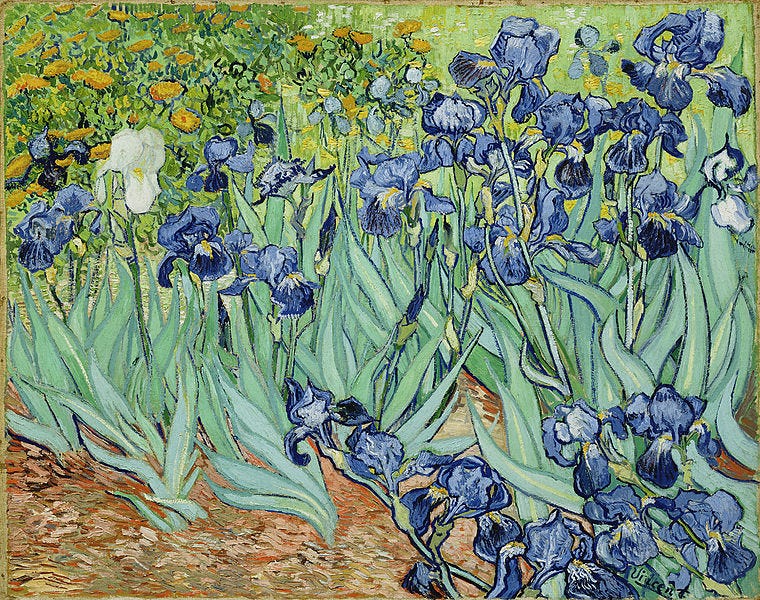An Interview with Lara d'Entremont, Homemaker and Author
Irises, Vincent Van Gogh
Today we are discussing homemaking and motherhood with Lara d’Entremont, whose writing on the weight of both external and self-imposed pressure on new moms gave me so much to think about.
Two preliminary notes:
I do not think of being a homemaker as excluding paid or unpaid work outside the home. Rather, I think of it as a vocati…
Keep reading with a 7-day free trial
Subscribe to The Home Front to keep reading this post and get 7 days of free access to the full post archives.


